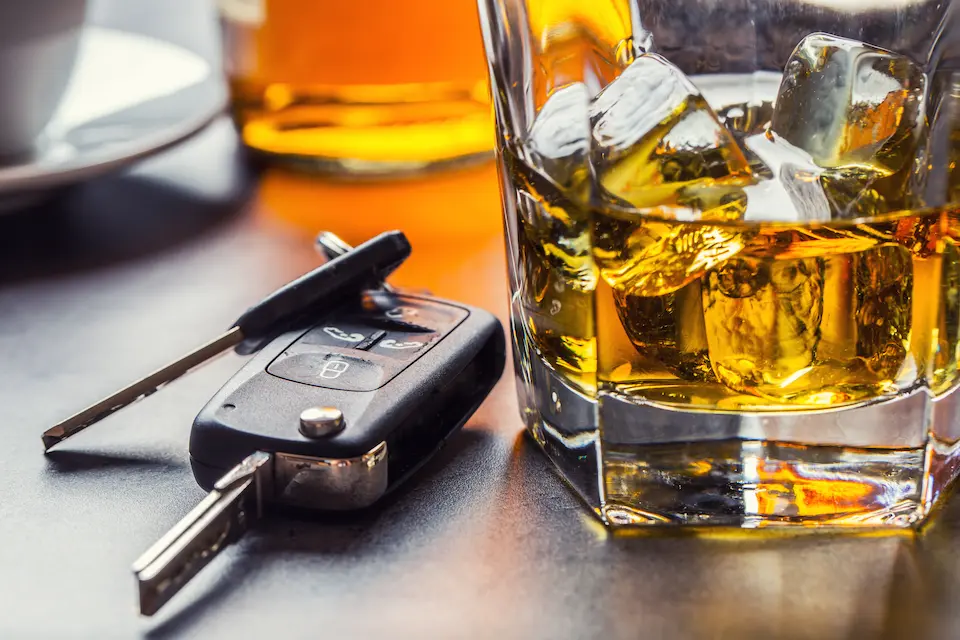Driving Under The Influence In North Carolina You may find yourself facing a driving while…
Driving While Impaired (DWI) is a serious offense in any state, but in North Carolina, the consequences of multiple DWI offenses can be particularly severe. Whether you're a first-time offender or faced a prior conviction for impaired driving in the past, it's essential to understand the legal landscape and the potential repercussions that come with each subsequent offense.
That's why our DWI defense attorneys from the Law Offices of J.M. Kotzker are exploring North Carolina's DWI laws and shedding light on the escalating penalties for habitual impaired driving.
Understanding North Carolina’s DWI Laws
To be charged with DWI in North Carolina, a person must operate a motor vehicle on any public road, highway, or public vehicular area while impaired by alcohol, drugs, or a combination of both. It's important to note that impaired driving isn't limited to just alcohol; it encompasses any substance that affects one's ability to drive safely. This includes an illegal drug, a lawfully prescribed drug, and even over-the-counter drugs if they impair a person's ability to drive safely.
BAC (Blood Alcohol Concentration) Limits in North Carolina
North Carolina DWI law, like many other states, uses BAC (Blood Alcohol Concentration) as a measure to determine whether a person is legally impaired. The BAC limit for non-commercial drivers is generally 0.08%. If your BAC exceeds this limit, you can be charged with DWI. However, for commercial drivers, the limit is significantly lower at 0.04%. Additionally, if you are under 21 years old, the limit is even lower at 0.00%, meaning any detectable alcohol in your system can lead to a DWI charge.
It's important to understand that even if your BAC is below the legal limit, you can still be charged with DWI if there is evidence of impairment due to alcohol or drugs. This is known as a "per se" violation, where the BAC level is just one factor considered when determining impairment.
Field Sobriety Tests and Implied Consent Laws
North Carolina law enforcement officers may administer field sobriety tests (FSTs) to assess a driver's level of impairment during a traffic stop. Common FSTs include the walk-and-turn test, the one-leg stand test, and the horizontal gaze nystagmus (HGN) test. These tests are designed to evaluate a driver's balance, coordination, and ability to follow instructions. Failing these tests can provide law enforcement with probable cause to arrest for an impaired driving offense.
Additionally, North Carolina has implied consent laws, which means that by operating a motor vehicle on the state's roadways, you are implicitly consenting to chemical testing of your blood, breath, or urine to determine your BAC or the presence of drugs. Refusing to take a chemical test can result in immediate consequences, such as a driver's license suspension.

First and Second DWI Offense Consequences
Facing a first DWI offense in North Carolina can result in significant criminal penalties, including:
- Fines
- Jail Time:
- License Suspension
- Mandatory Alcohol Assessment and Treatment
- Ignition Interlock Device (IID) Requirements
- Impact on Insurance Premiums
Enhanced Consequences for Second Offense DWI
When facing a second DWI offense in North Carolina, the penalties become significantly more severe compared to a first-time offense:
- Longer License Suspension: The license suspension period for a second DWI offense is typically longer, ranging from one to four years.
- Higher Fines: The fines for a second DWI offense can be substantially higher than those for a first offense. Convicted individuals may face fines that can range from thousands to tens of thousands of dollars, depending on the circumstances.
- Mandatory Jail Time: North Carolina law mandates a minimum jail sentence for individuals convicted of a second DWI offense. The minimum jail time can vary based on factors such as BAC level, prior convictions, and other aggravating circumstances.
- Potential Vehicle Forfeiture: Vehicle forfeiture is a possibility if you have a prior DWI conviction within the last seven years or if certain aggravating factors are present in your current case.
- Ignition Interlock Device (IID) Requirements: Similar to a first-time offense, individuals convicted of a second DWI offense may be required to install an Ignition Interlock Device (IID) in their vehicle.
- Enhanced Consequences for High BAC Levels: If your second DWI offense involves a particularly high BAC level, the penalties can be even more severe. North Carolina has specific aggravating factors that can lead to enhanced punishments, including higher fines and longer jail sentences.
Third or Subsequent DWI Offense Consequences
A third or fourth DWI conviction in North Carolina is treated as a felony. This means that the consequences are even more severe than those for previous misdemeanor convictions. Felony DWI convictions have long-lasting legal and personal ramifications, including the potential for substantial prison time and other collateral consequences.
Mandatory Minimum Sentences
North Carolina imposes mandatory minimum sentences for individuals convicted of a third or subsequent DWI offense. These minimum sentences can result in significant time behind bars, and the exact duration depends on various factors, including prior convictions, BAC levels, and any aggravating circumstances.
Permanent License Revocation
Conviction of multiple DWI offenses can lead to the permanent revocation of your driver's license. Unlike previous offenses, there may be no opportunity for reinstatement of your driving privileges. This can have a profound and lasting impact on your ability to commute, work, and maintain personal commitments.
Potential Forfeiture of Property
In addition to the potential loss of your driver's license, multiple DUI convictions can result in the forfeiture of your vehicle or other property, particularly if certain aggravating factors are present in your case.
Implications on Employment and Housing
A felony DWI conviction can have serious consequences beyond the legal penalties for individuals with a prior DUI conviction. It can significantly affect your employment prospects and housing options. Many employers and landlords conduct background checks, and a felony conviction can make securing certain jobs or rental properties challenging.

Understanding Mitigating, Aggravating, and Grossly Aggravating Factors
Facing multiple DWI charges in North Carolina can be a daunting experience, with the potential for severe consequences that can impact your life significantly. The state's legal system categorizes various factors that can influence the severity of the penalties imposed. These are known as mitigating, aggravating, and grossly aggravating factors. Understanding these can be crucial for anyone grappling with the implications of multiple DWI offenses.
Mitigating Factors: A Ray of Hope
Mitigating factors serve as a beacon of hope, potentially lessening the severity of the penalties. These factors include circumstances such as a Blood Alcohol Concentration (BAC) that is marginally above the legal limit, safe driving at the time of the offense, or a previously clean driving record. Demonstrating a commitment to rehabilitation, such as voluntarily undergoing a substance abuse assessment and following through with the recommended treatment, can also be seen in a favorable light. These mitigating factors can sway the scales towards a more lenient sentence, offering a chance for offenders to mitigate the impact on their lives.
Aggravating Factors: The Weight That Tips the Scales
On the flip side, aggravating factors can tip the scales toward harsher penalties. These include reckless or dangerous driving, a BAC significantly above the legal limit, or a prior history of traffic violations. Such factors underscore the seriousness of the offense and can lead to increased fines, longer jail time, and extended license suspension periods.
Grossly Aggravating Factors: The Game Changers
Grossly aggravating factors are the most critical elements that can escalate the severity of DWI penalties. These include prior DWI convictions within a specific timeframe, driving on a revoked license due to a DWI, or causing an accident that results in serious injury. Perhaps most consequential is the presence of a minor in the vehicle at the time of the offense, which can lead to the most severe level of DWI charges. These factors are considered game changers and can dramatically alter the course of sentencing.
Alternative Sentencing and Defense Strategies for Impaired Driving
When facing legal challenges, understanding the various options available for defense and potential alternatives to traditional sentencing is crucial. Alternative sentencing and defense strategies can offer individuals a way to navigate the legal system more effectively, potentially leading to reduced charges or more favorable outcomes.
Pretrial Diversion Programs
In some cases, individuals facing multiple DWI offenses may have the option to participate in pretrial diversion programs. These programs can provide an alternative to incarceration and may include requirements such as substance abuse treatment, probation, and community service. Successful completion of a diversion program can lead to reduced charges or penalties.
Plea Bargaining and Reduced Charges
Experienced DWI attorneys can negotiate with prosecutors to explore plea bargain options that may result in reduced charges or sentencing. This can sometimes lead to a more favorable outcome for the defendant.
Building a Strong Defense with Legal Representation
Given the gravity of the consequences for third or subsequent DWI offenses, it is essential to have a skilled DWI attorney by your side. An attorney can evaluate the details of your case, challenge evidence, and craft a strong defense strategy. They can also guide you through the legal process and help you understand your rights and options.
Facing multiple DWI offenses is a serious matter with far-reaching consequences. The Law Offices of J.M. Kotzker are well-versed in North Carolina's DWI laws and can provide the expertise and advocacy you need to protect your rights and work towards the best possible outcome in your case.
Collateral Consequences of a DWI with a Prior Conviction
In addition to the immediate legal penalties, multiple DWI offenses can trigger collateral consequences that extend beyond the courtroom. These secondary ramifications can significantly impact your life, including employment, professional licenses, immigration status, and even family matters.
Impact on Employment Opportunities
Many employers conduct background checks, and a criminal record can make it difficult to secure or maintain certain jobs. Some professions, such as driving, law enforcement, healthcare, and education, may have specific restrictions or regulations regarding DWI convictions that can jeopardize your career.
Impact on Professional Licenses
Licensing boards for various professions, such as lawyers, doctors, nurses, and teachers, may have disciplinary procedures in place for individuals with criminal convictions. Depending on the circumstances, your professional license may be suspended or revoked, affecting your ability to practice in your chosen field.
Impact on Immigration Status
A DWI conviction may result in deportation or denial of immigration benefits, such as visas or green cards. Immigration authorities consider certain criminal convictions, including DWI, as grounds for removal or inadmissibility.
Effect on Child Custody and Visitation Rights
If you are involved in a child custody or visitation dispute, a DWI conviction can be used against you in family court. Judges may take into account a prior conviction DWI offense when determining what is in the best interests of the child.
Contact the Law Offices of J.M. Kotzker for Expert DWI Defense
If you're facing DWI charges in Raleigh, North Carolina, don't navigate this complex and potentially life-altering situation on your own. At the Law Offices of J.M. Kotzker, our skilled Raleigh defense attorneys have the knowledge, experience, and dedication to provide you with expert DWI defense. Our team is here to listen to your story, assess the details of your case, and craft a personalized defense strategy tailored to your unique circumstances.
We understand the seriousness of DWI charges and the far-reaching consequences they can have on your life. Take the first step in protecting your rights and future by reaching out to us today. Please get started by calling us at (919) 439-5104 or filling out the contact form below.
